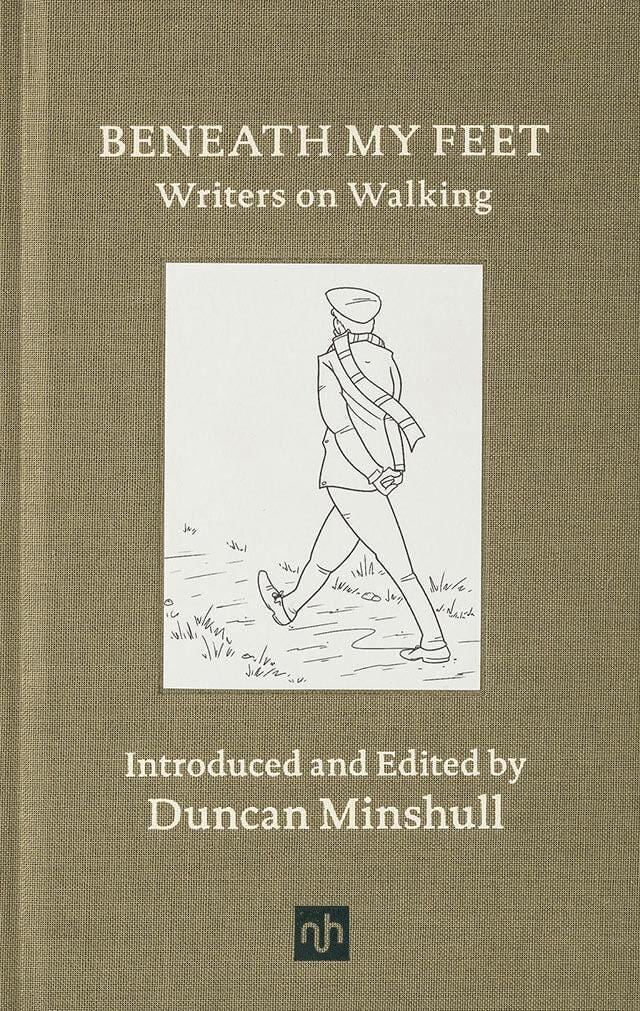Tolstoy said, “All great literature is one of two stories; a person goes on a journey or a stranger comes to town.”
Which means that literature is fundamentally about movement and seeking—and all of the conflicts and obstacles that arise from moving and seeking.
I’m thinking about this because Shanthi Sekaran was recently on my podcast, Write-minded, and she went beyond Tolstoy’s quote to broaden the notion of migration as a storytelling metaphor:
“If you look at the seven basic plot types that we talk about in kinds of writing, immigration can fit into all of those — fighting the beast, the hero’s journey, comedy, tragedy. Immigration works its way into all of these motifs. I think it also speaks to the fact that migration is not just the act of crossing a geographical border. Migration happens to us consistently throughout our lives. Motherhood is a type of migration. Getting married is a type of migration.
We migrate constantly throughout our lives, and I think when we look at migration in political terms, we really otherize it. We don’t realize that we constantly are migrating — that these immigrants that we cast as the ‘other’ are actually doing something that your standard American does very frequently throughout their lives.”
I love exploring metaphors for plot—especially metaphors that go beyond the traditional roller coaster metaphor for plot—or Freytag’s pyramid, as it’s known—because it just doesn’t offer a mental model that helps me conceive of my stories.
So I really like this metaphor of migration: a character’s movement into the unknown. It gets at the very basics of plot. I think of the way Stephen King boiled down plot to being simply a character going into a situation in one state and then exiting the situation on the other side in a different state. So plot is migration, or a series of migrations. Perhaps the migration builds in tension or suspense, or perhaps it swirls about, or perhaps there is just one long migration, a pilgrimage, a flight.
But it isn’t just a movement through space. I like the way Shanthi talked about the different kinds of movements across thresholds of our lives. We often unnecessarily privilege the stories of the hero’s external quest—a la Joseph Campbell’s Hero’s Journey, which forms itself around a character who leaves home and discovers something in the world. It’s essentially an adventure story, a quest. The character goes forth, faces challenges, and then brings back a gift, sometimes as simple as knowledge of what they’ve experienced.
But that journey doesn’t reckon with the interior or domestic quest that can be equally dramatic. I always think of how we hear of Odysseus’s exploits on his travels back home after the Trojan War in The Odyssey, but his wife Penelope’s drama of waiting for him to return is in many ways more interesting to me. Think of her interior migrations over those years.
The metaphor of migration opens up storytelling into different forms for me. I think of Maggie Nelson’s Bluets, which I just read. Bluets is a migration into grief and remembrance. The book is constructed about snippets or fragments of prose, which she calls “provocations,” somewhat similar to Roland Barthes’ Mourning Diary, which he wrote after his mother died. Both books show grief as something you don’t travel through and recover from, but as something that eddies about in your life and interrupts.
The migration is circular in these narratives, and that is the point, in fact, to show the different way that grief moves in your life and the different boundaries it presents. Migration naturally holds indeterminancy, which is why it’s a better model for plot than Freytag’s pyramid to me because the pyramid demands escalating action. Migration demands only movement, which can take so many forms.
Check out the Write-minded episode with Shanthi.
Photo Prompt
Use this photo as a prompt, as a random catalyst, as an igniter for any writing project you're working on. Or … simply write a story about this photo in less than 250 words and share it.
Because Quotes Are Nice
“The feeling that the work is magnificent, and the feeling that it is abominable, are both mosquitoes to be repelled, ignored, or killed, but not indulged.”
~ Annie Dillard
Because A Haiku
First nothing happened
And then a little later
Nothing happened again
Whimsicality
On Rejection
“This manuscript of yours that has just come back from another editor is a precious package. Don’t consider it rejected. Consider that you’ve addressed it ‘to the editor who can appreciate my work’ and it has simply come back stamped ‘Not at this address.’ Just keep looking for the right address.”
~ Barbara Kingsolver
Something to Read
Walking and writing have always gone together. They've been even more intrinsically connected in this pandemic era because walking has been a primary way of socializing unlike in past times.
I enjoyed Beneath My Feet: Writers on Walking as a way to ponder the benefits of this easily accessible way to exercise—and think! The book rounds up the most memorable walker-writers from the 1700s to the modern day.
“Above all, do not lose your desire to walk: every day I walk myself into a state of well-being and walk away from every illness.” —Søren Kierkegaard




